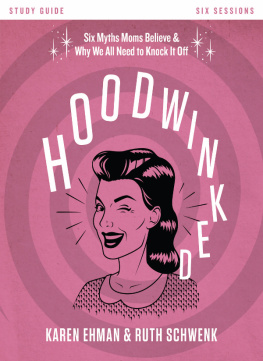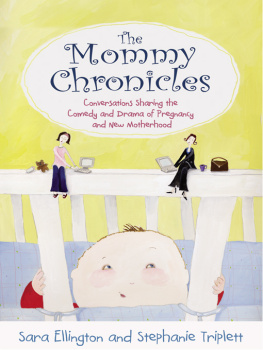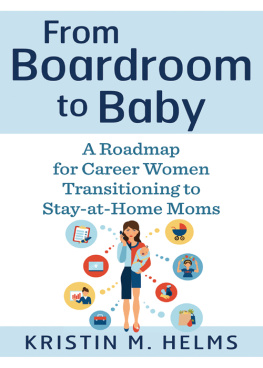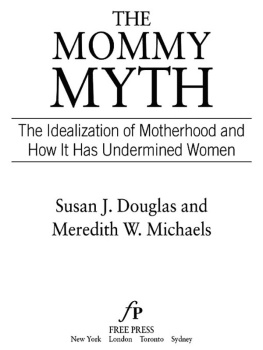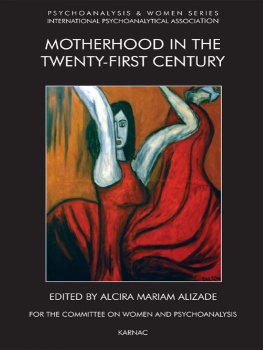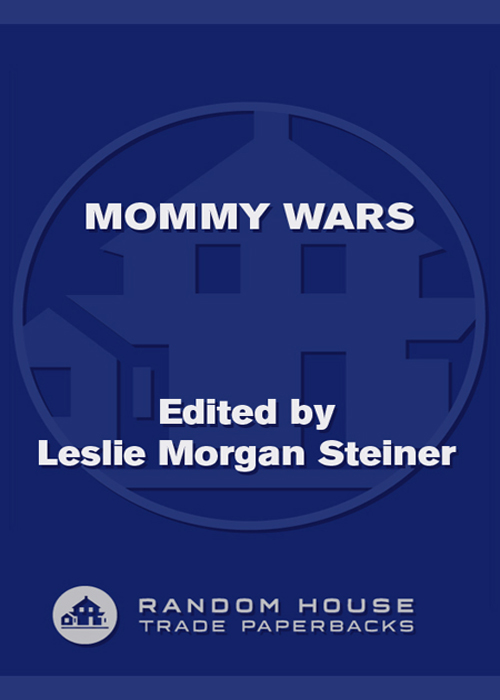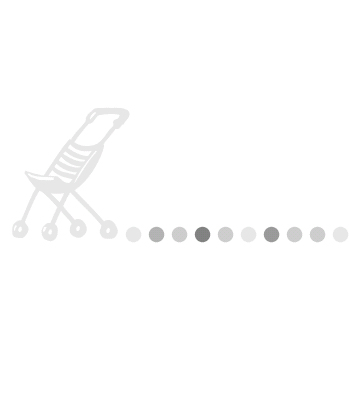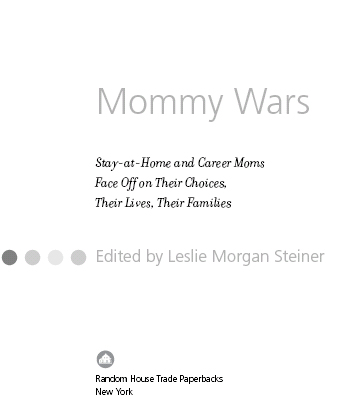Leslie Morgan Steiner - Mommy Wars: Stay-at-Home and Career Moms Face Off on Their Choices, Their Lives, Their Families
Here you can read online Leslie Morgan Steiner - Mommy Wars: Stay-at-Home and Career Moms Face Off on Their Choices, Their Lives, Their Families full text of the book (entire story) in english for free. Download pdf and epub, get meaning, cover and reviews about this ebook. year: 2007, publisher: Random House Publishing Group, genre: Home and family. Description of the work, (preface) as well as reviews are available. Best literature library LitArk.com created for fans of good reading and offers a wide selection of genres:
Romance novel
Science fiction
Adventure
Detective
Science
History
Home and family
Prose
Art
Politics
Computer
Non-fiction
Religion
Business
Children
Humor
Choose a favorite category and find really read worthwhile books. Enjoy immersion in the world of imagination, feel the emotions of the characters or learn something new for yourself, make an fascinating discovery.

- Book:Mommy Wars: Stay-at-Home and Career Moms Face Off on Their Choices, Their Lives, Their Families
- Author:
- Publisher:Random House Publishing Group
- Genre:
- Year:2007
- Rating:4 / 5
- Favourites:Add to favourites
- Your mark:
Mommy Wars: Stay-at-Home and Career Moms Face Off on Their Choices, Their Lives, Their Families: summary, description and annotation
We offer to read an annotation, description, summary or preface (depends on what the author of the book "Mommy Wars: Stay-at-Home and Career Moms Face Off on Their Choices, Their Lives, Their Families" wrote himself). If you haven't found the necessary information about the book — write in the comments, we will try to find it.
Ranging in age from twenty-five to seventy-two and scattered across the country from New Hampshire to California, these mothers reflect the full spectrum of lifestyle choices. Women who have been home with the kids from day one, moms who shuttle from full-time office jobs to part-time at-home work, hard-driving executives who put in seventy-hour-plus weeks: they all get a turn. The one thing these women have in common, aside from having kids, is that theyre all terrific writers.
Pulitzer Prize winner Jane Smiley vividly recounts how her generation stormed the American workplaceonly to take refuge at home when the workplace drove them out. Lizzie McGuire creator Terri Minsky describes what it felt like to hear her kids scream I hope you never come back! when she flew to L.A. to launch the show that made her career. Susan Cheever, novelist, biographer, and Newsday columnist, reports on the furious battles between the stroller pushers and the briefcase bearers on the streets of Manhattan. Lois R. Shea traded the journalistic fast track for a house in the country where she could raise her daughter in peace. Ann Misiaszek Sarnoff, chief operating officer of the Womens National Basketball Association, argues fiercely that you can combine ambition and motherhoodand have a blast in the process.
Candid, engaging, by turns unflinchingly honest and painfully funny, the essays collected here offer an astonishingly intimate portrait of the state of motherhood today. Mommy Wars is a book by and for and about the real experts on motherhood and hard work: the women at home, in the office, on the job every day of their lives.
Including these essays:
Neither Here nor There by Sandy Hingston
The Mother Load by Terri Minsky
Sharks and Jets by Page Evans
Baby Battle by Susan Cheever
Guilty by Dawn Drzal
The Donna Reed Syndrome by Lonnae ONeal Parker
Mother Superior by Catherine Clifford
Good Enough by Beth Brophy
Big House, Little House, Back House, Barn by Lois R. Shea
What Goes Unsaid by Sydney Trent
I Hate Everybody by Leslie Lehr
Before; After by Molly Jong-Fast
I Do Know How She Does It by Ann Misiaszek Sarnoff
Red Boots and Cole Haans by Monica Buckley Price
Working Mother, Not Guilty by Sara Nelson
Feminism Meets the Free Market by Jane Smiley
Happy by Anne Marie Feld
I Never Dreamed Id Have So Many Children by Lila Leff
On Being a Radical Feminist Stay-at-Home Mom by Inda Schaenen
Being There by Reshma Memon Yaqub
Russian Dolls by Veronica Chambers
Peace and Carrots by Carolyn Hax
...
Leslie Morgan Steiner: author's other books
Who wrote Mommy Wars: Stay-at-Home and Career Moms Face Off on Their Choices, Their Lives, Their Families? Find out the surname, the name of the author of the book and a list of all author's works by series.

